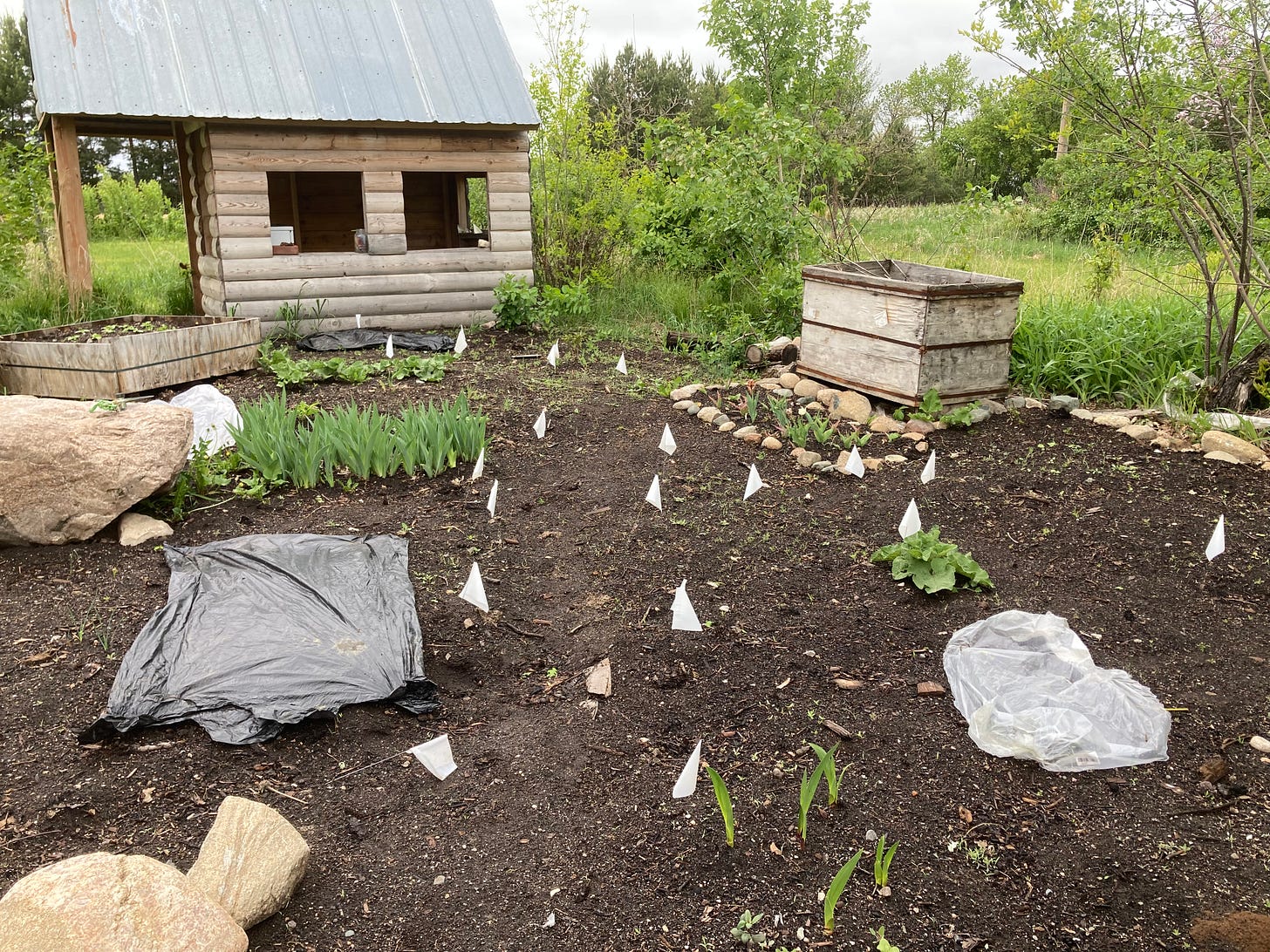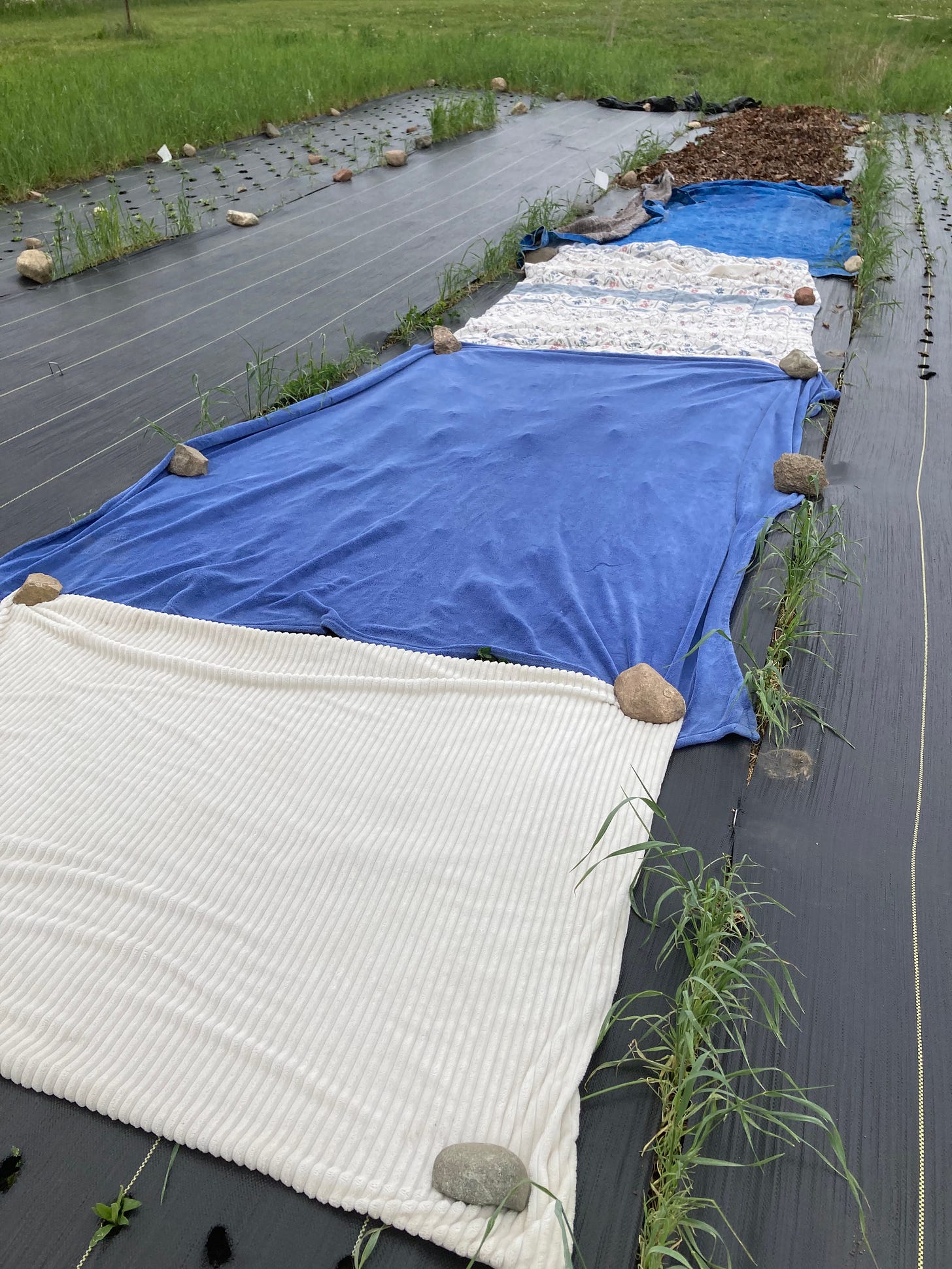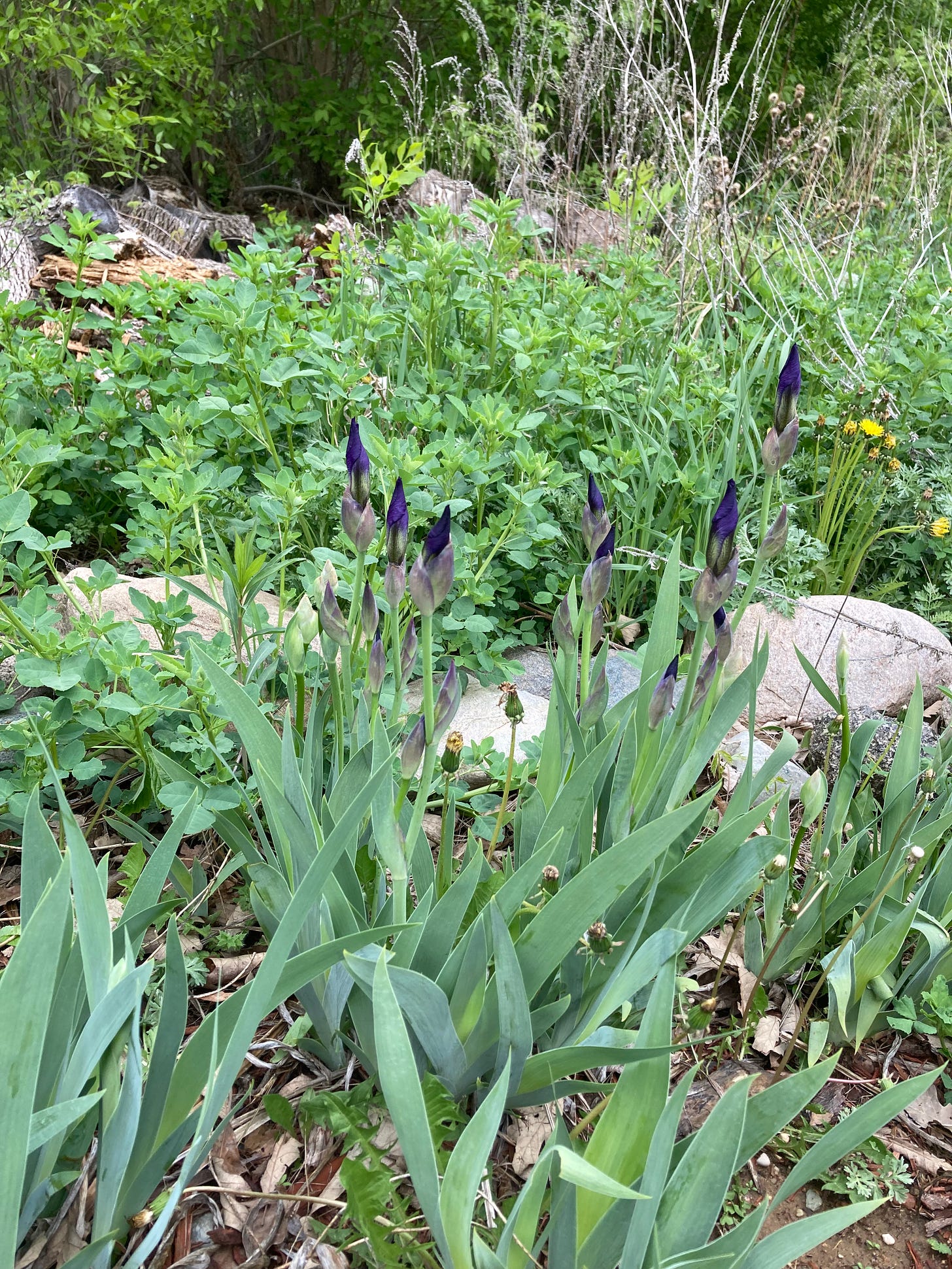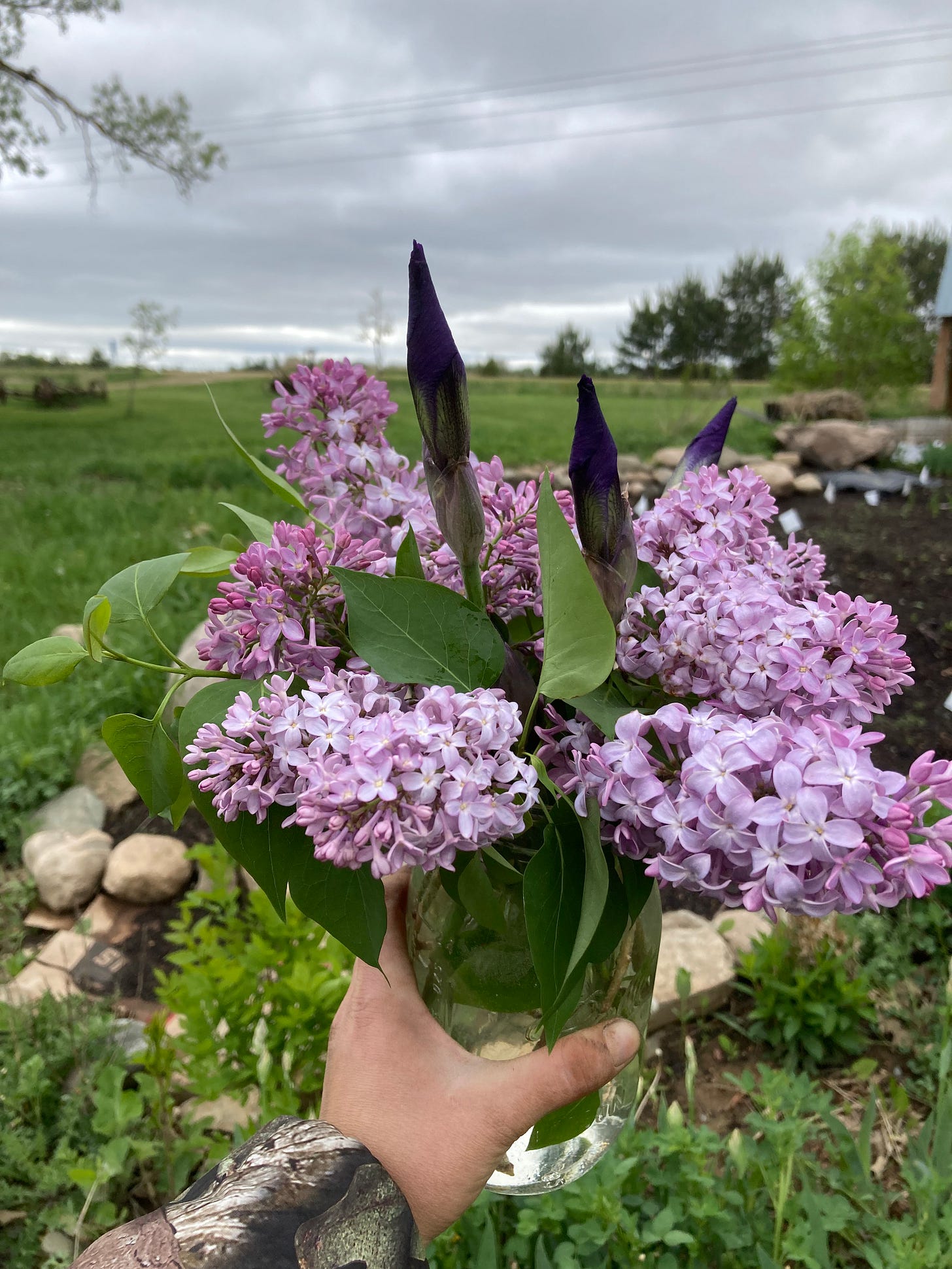Plants, Blessings, and Agape Love
Considering the immutable while I prepare for the unpredictable
What a grand thing, to be loved! What a grander thing still, to love!
~Victor Hugo

After the sweat and sunburn of a series of 85-90 degree days, I thought the danger of frost was well past. The Frozen North has other plans: an alert appears on my phone, threatening widespread frost. I sigh and tuck the phone back into my pocket, continuing to pop plugs into holes in the landscaping fabric.
I think of all the seeds I’ve already sown - hundreds, if not thousands, of tiny bundles of potential. Many are cold-hardy and will survive the frost easily, but many are sensitive to the freezing temperatures. I check the 10-day forecast. There’s still hope that it won’t drop so low. It’ll be close.
Close enough to prepare like a madman.
I’m not a fancy flower farmer yet, so I don’t have all the tools that could help save my plants: namely, frost cloth. This thin but strong fabric raises the temperature beneath it by 5-10 degrees, plenty enough to keep my seedlings alive. I use the redneck alternative: old sheets and blankets.
I spread them over the most vulnerable of my plants: tender dahlia shoots, tiny zinnia seedlings, and fragile strawberry flowers. I pray that God will bless my plants and my efforts, but deep inside, I wonder if I’ll have to add all these to the growing number of plants I’ve killed.
My mind turns to philosophy and theology, as it does while I garden. Are all those dead plants wasted? Have I, through my beginner errors and poor stewardship, kept them from being what they were made to be?
If all I look at is their collective title, then no - they are plants. They become what they are when they are planted, not when they sprout, grow, or bear fruit. Those are an added blessing.
My thinking wanders to the concept of blessing. I use the word frequently. “I’m very blessed.” Or, “God bless them.” Or, “What a blessing.” Lately, I’ve been wondering what it really means. A cursory study of the Scriptures show that it was a common idea in the Old Testament, further developed after the life and work of Christ. The usage of the concept in the OT shows that a blessing was the gift of an unrealized potential, with the possibility for increased fruitfulness because of the action of the people who were blessed.
For example, Abraham was blessed with the ability to have Isaac, and received countless generations because of his blessing. He was blessed (a status) and fruitful (bonus action).1
Knowing the context of blessing deepens my request to God when I ask him to bless my flowers: I want to see them fruitful beyond their status as plants.
Followers of Christ have this chance to be blessed to fruitfulness. Matthew 5:2-12 lists several beautiful examples of these: the poor in spirit, those who mourn, the humble, those who long for righteousness, the merciful, the pure in heart, the peacemakers, the persecuted. Each party is followed by a gift that, in the affliction of these blessed people, is an unrealized potential which will bear fruit.
Blessed.
I think of the other immutable statuses I have from God, in which he invites me to deeper relationship and increased fruit. I am his image bearer. I am justified. I am loved.
The magnificent agape love of Christ - unconditional, irrevocable, overflowing from the very heart of God. God has blessed me with his love, so that is the one condition that should affect the bounds of my love. I am loved - that is an unchanging gift that God has given me.
Regardless of who I am (loved), there are far too many times I doubt the why. I do not see myself as lovable. I see my anger, my impatience, my independence. Yet, the way that I am loved by God is not dependent on how “lovable” I am. It’s actually a stupid word - no one can be deserving of unconditional love. So, the perceived quality or quantity of love that I receive actually speaks to the love-ability (the capacity to love) of the giving party, not to my merits or faults.2
Interestingly, the pieces of my character that I think make me unworthy of love are actually the pieces that inhibit my ability to love.
The first night of potential frost has passed, and I am still wrestling with this question. The temps never got below 37 degrees, so my plants live on. Their shot at fruitfulness continues. So it is with my experience of the blessing of human love: I am intrinsically loved, but the way I give and receive love is continually unrealized potential. I pray that I would be found faithful in developing and practicing my capacity to love. I am lovable: able to love. It is a blessing with fruit yet to be seen.
May I steward this gift well, remembering the source of my blessings.
Thanks for spending ~5 minutes of your time with me! Do come again (:
Until next time, then - write a poem, ditch your Keurig for a traditional coffee pot, and plant a seed.
Faithfully,
Katie Stacey
Note for those who have been around awhile~ Musings is now Selah Farm and Gardens! I’ve updated my branding as I refine my focus: using the lessons from my garden to explore the things of God. If you enjoy my writing, you can upgrade to a paid subscription or Buy Me a Coffee.
See Genesis 17-21 for this blessing and story.
Likeability is another matter







Lovable vs love ability! Awesome!